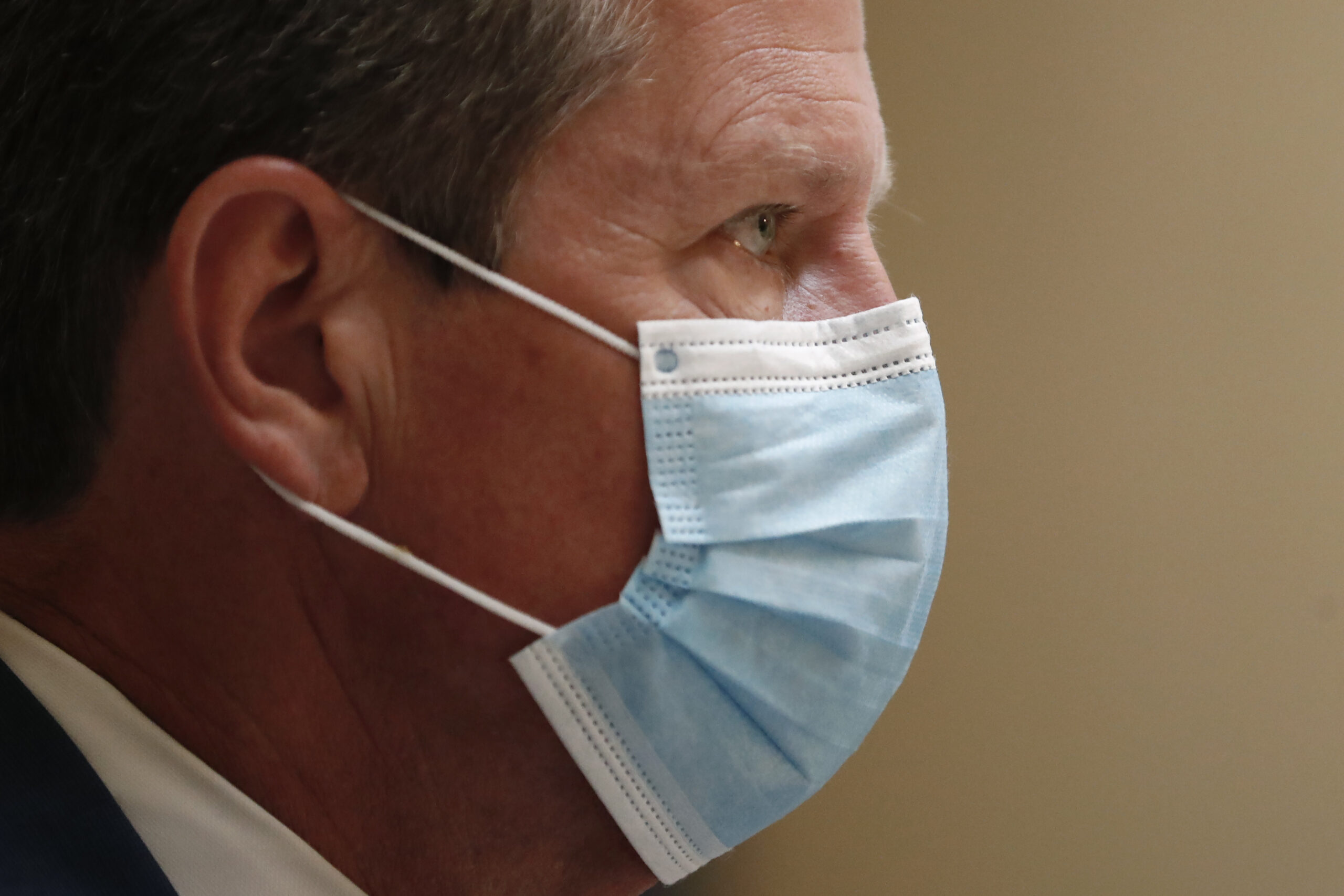Surging numbers of COVID-19 deaths continued in Georgia on Wednesday as the number of confirmed cases in the state surpassed 150,000.
Health officials say the jump in deaths follows the increasing number of cases in Georgia. The state Department of Public Health reported 81 deaths Wednesday, the second-highest number reported so far in the pandemic, below only the 100 deaths reported on April 7.
The big number followed 78 deaths reported on Tuesday, combining to push up Georgia’s seven-day trend in deaths to a level not seen since early June. Not all deaths are reported immediately, but state Department of Public Health spokesperson Nancy Nydam said Tuesday that more than 90% of deaths with known dates reported Tuesday happened in July, indicating they’re likely related to the surge in cases that began in Georgia in June.
Deaths are a lagging indicator in the coronavirus pandemic, following confirmed infections and hospitalizations. The state reported more than 3,300 confirmed infections Wednesday, although studies indicate only a fraction of virus infections are ever officially confirmed. That number, although elevated, actually shows signs of leveling off.
However, 3,179 people were in the hospital with the respiratory illness on Wednesday, staying close to the record high set on Monday. Of the state’s critical care beds, 88% were full, amplifying messages from hospital executives and medical workers that hospitals are running out of room for new patients. The number of patients on ventilators also rose, although not all in critical care or on ventilators are sick with COVID-19
For example, the head of Georgia’s largest hospital told reporters Tuesday that Atlanta’s Grady Memorial Hospital was operating at 105% capacity, meaning some inpatients were being kept in the emergency department.
“During this second wave that we’re experiencing in many parts of the country we’re seeing double, triple the amount of COVID inpatients that we saw during the peak that we experienced in May,” Grady CEO John Haupert told WABE-FM.
He said the hospital was canceling some elective surgeries, a financial hit to the public safety-net hospital supported by Fulton and DeKalb counties.
Northeast Georgia Medical Center in Gainesville opened its new mobile medical unit Tuesday, The Gainesville Times reports, and tied its previous record for COVID-19 patient numbers across the four-hospital system on Wednesday. The 20-bed unit, built by the state using modular units, is in a gravel lot, freeing up space in the main hospital. The state has provided similar units in Albany, Rome and Macon.
Despite a lawsuit against Atlanta’s mayor and city council by Gov. Brian Kemp for exceeding his executive orders, local governments continue to order people to wear masks in public. Bibb County and the Atlanta suburb of Clarkston both passed such rules Tuesday.
A hearing on an emergency request by the Republican Kemp to stop Atlanta from enforcing its mask mandate and other restrictions related to the COVID-19 pandemic while the lawsuit is pending was canceled Tuesday after judges recused themselves. The case has been reassigned and the hearing is now set for July 28.
The Georgia Municipal Association, in a brief filed in the case, says city mask orders are legal and Kemp can’t stop them in public, or on public property, as he seeks to do.
“None of the provisions in that statute, or any other statute, provide the governor with the ability to suspend home rule powers of municipalities or provide the Governor with the ability to preempt municipalities from taking actions that supplement and are consistent with his orders, and which promote and secure the safety and protection of people within their own jurisdictions,” the association wrote in a brief filed Wednesday.









